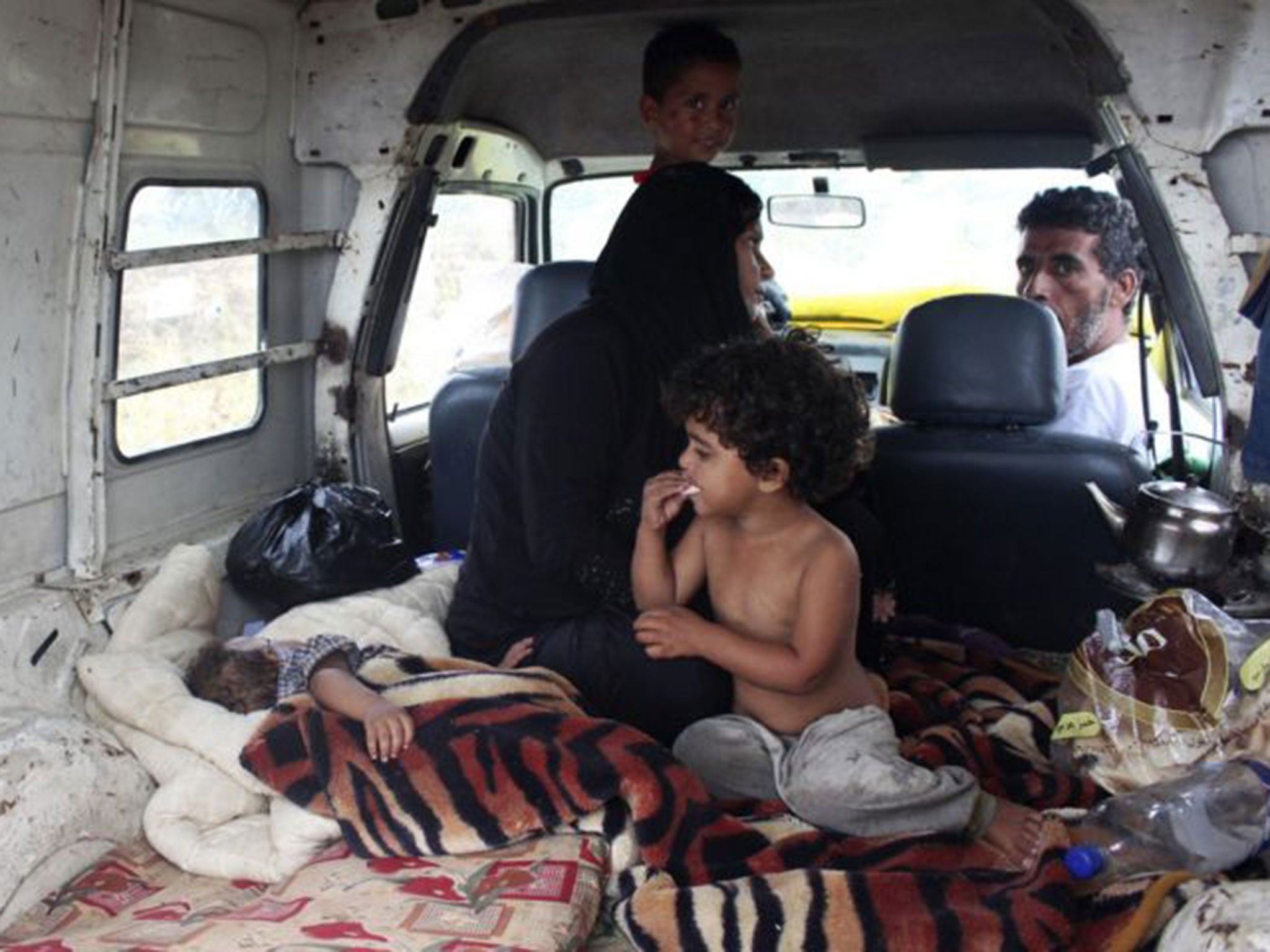Lebanon faces Isis and Nusra incursions – and an influx of refugees
Arab compatriots show little sympathy for Syrian families fleeing violence

Your support helps us to tell the story
From reproductive rights to climate change to Big Tech, The Independent is on the ground when the story is developing. Whether it's investigating the financials of Elon Musk's pro-Trump PAC or producing our latest documentary, 'The A Word', which shines a light on the American women fighting for reproductive rights, we know how important it is to parse out the facts from the messaging.
At such a critical moment in US history, we need reporters on the ground. Your donation allows us to keep sending journalists to speak to both sides of the story.
The Independent is trusted by Americans across the entire political spectrum. And unlike many other quality news outlets, we choose not to lock Americans out of our reporting and analysis with paywalls. We believe quality journalism should be available to everyone, paid for by those who can afford it.
Your support makes all the difference.The shooting went on for hours, heard even in the centre of ancient Baalbek as Hezbollah and the Jabhat al-Nusra/Isis insurgents from Syria fought it out on the ridgeline above the Roman city.
That is all the people of Baalbek could say on Monday after Hezbollah announced – after rather a long time – that the jihadis had been sent packing back up towards Syrian Qalamoun. But it was another shock to the body politic of Lebanon.
We’ve been here before, of course, in similar battles in July, and then in the brief capture of Ersa, north of Baalbek, in August when Isis managed for a few forbidding hours to take over the Sunni town and seize almost 24 Lebanese soldiers, two of whom have since suffered the now all-too-familiar and awesome punishment of decapitation.
But does this mean that Isis has leached over the border and put its black-and-white flags into the soil of Lebanon?
The details of the latest raid are frustratingly difficult to ascertain. First reports spoke of “hundreds” of Nusra fighters with mortars and rocket-propelled grenades storming at least 10 almost inaccessible Hezbollah outposts close to the Syrian border, strong points placed there for the very purpose of preventing the jihadis from crossing into Lebanon and threatening the Hezbollah supply route through Baalbek to the south of he country where, of course, another enemy – Israel – might await the Iranian-armed and financed movement. Casualty figures moved uncertainly between 14 jihadis and three Hezbollah dead, and 16 jihadis with eight Hezbollah dead. But the figures, as usual, are less important than the implications.
As the sub-head of one recent article in the Lebanese Christian press put it rather well, it seems that from now on the destiny of Lebanon will be “in the hands of Nusra and the ‘Islamic State’ [as Isis calls itself], which each day wickedly spreads its venom deeper into Lebanese territory”. This may be taking things a little too far. When Hezbollah sent thousands of its fighters across the Syrian border to help President Bashar al-Assad’s army fight its jihadi enemies, it could hardly be surprised if those same enemies decided to strike back across the frontier in the other direction. Each little jihadi “victory”, however, gives heart to their coterie of supporters in the Lebanese Sunni community, especially in Tripoli where a few Isis posters have been seen.
There have been Isis tweets, too, directed at the Lebanese state, castigating its army’s behaviour. Lebanon’s military is a working institution and its multi-ethnic ranks are anathema to the Sunni fighters loyal to Mosul’s odd new “caliph”, Abu Bakr al-Baghdadi. Arsal’s much-troubled Sunni population is host to a mass of Syrian refugees and fears it may permanently fall under Isis’s yoke – as if, in the words of the town’s municipality President, Ali Hujeiri, Isis wants to invite Baghdadi to Lebanon.
No one in the country forgets that the original title of this morbid new “state” entity was the Islamic State of Iraq and the Levant – and that the Levant area includes Lebanon as well as Syria. Inevitably, Syrian refugees – now a third of Lebanon’s population – have found themselves victims of almost racist threats from their Arab compatriots in the country. There are nightly incidents of intimidation against them in Beirut where wall posters have appeared at dusk, ordering Syrian men and their families to leave within 12 hours the cheap lodgings in which they are crowded.
The Lebanese army has done little about this – just as it failed to intervene in the Hezbollah-jihadi fighting at the weekend. Hezbollah’s Syrian government allies have meanwhile been drawing eerie comparisons between its army’s present struggle against “Wahabi-Zionist enemies” with foreign weapons – “wahabi” being a code word for Saudi Arabia – and its 6 October 1973 battles with Israel, which was also armed with foreign weapons.
Syrian state television showed a collage of its soldiers fighting Israel on the Golan Heights 41 years ago and its present-day troops fighting opponents of President Assad inside Syria. What those old soldiers who briefly captured Observatory Ridge – but who are now in their sixties or seventies – think of the current tragedy in their country is anyone’s guess, if those soldiers are still alive.
Syrian television has even taken to quoting Iraqi television, applauding the death of three Isis officers supposedly killed by Iraqi government troops in a battle north-east of Baquba. Under President Assad’s father, Hafez, a state of near-open hostility existed between Syria and Saddam Hussein of Iraq.
The Baath party existed in both countries in mutual suspicion and would never dream of praising their opponents. Those were the days.
Join our commenting forum
Join thought-provoking conversations, follow other Independent readers and see their replies
Comments